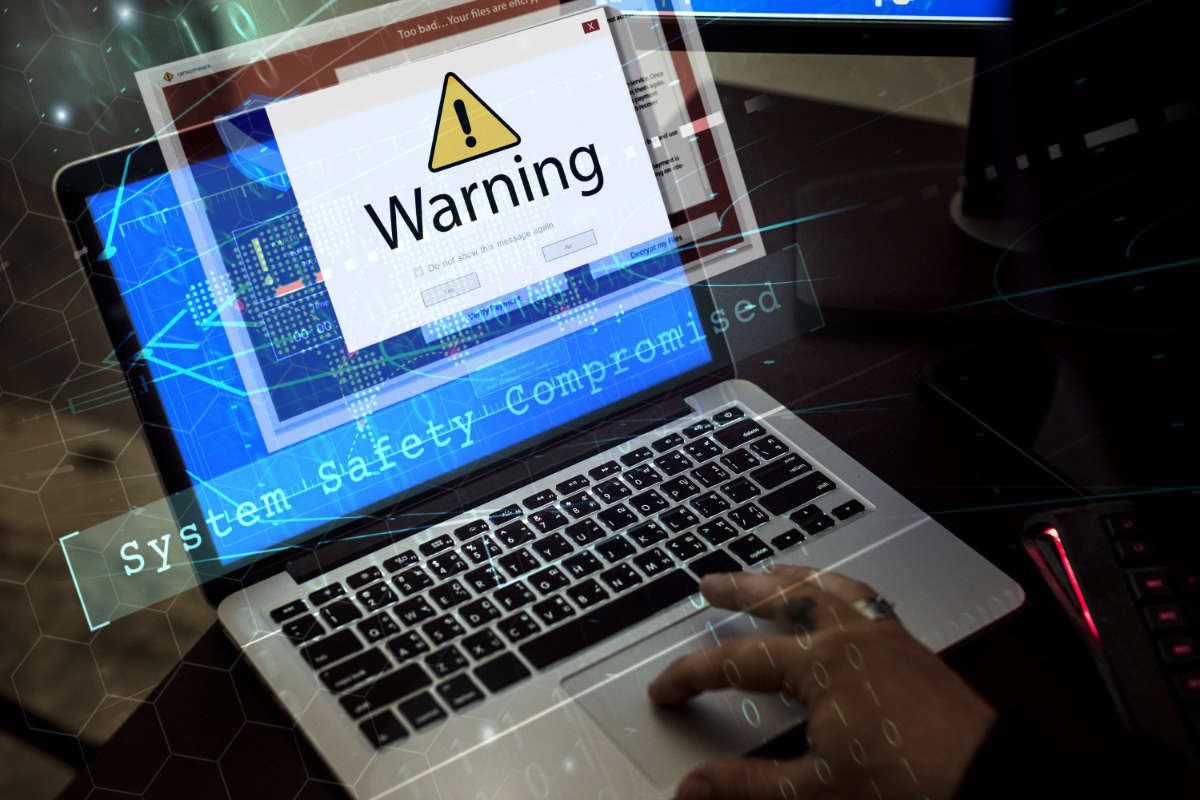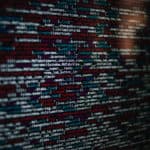
Tempo di lettura stimato: 9 minutes
Agile working and smart working are now a daily reality for many workers. Whether it is a practice within your company or an occasional event, almost everyone has to use public networks to work or surf the net. In this social situation, you cannot take the protection of your data on the net lightly. This is why the ‘ use of a VPN should be very common practice.
A VPN is a service that encrypts your data and hides your IP address by bouncing your network activity through a secure chain of connections to another server miles away. This < em> obscures your online identity , even on public Wi-Fi networks, so you can browse the internet securely and anonymously, without the risk of your data being intercepted, modified or exploited.

The use of a VPN
The advantages of using a VPN are many and are worth a lot, in terms of security and functionality. We can identify two types of VPN, which are actually the same thing, but declined in a different.
The most famous and end-user-oriented VPNs, those that allow you to simulate your location in another country to take advantage of a different online catalog on services like Netflix , for example, offer the same benefits and functionality as corporate VPNs.
We have already seen in another article how VPNs work and with this one from today I want to list 9 reasons why the use of a VPN should be the norm today , be it business or a service for private users. We will also see some limitations of VPNs, just to get a complete picture of the situation.
1. Security in public networks
Public Wi-Fi is very convenient, but it is at the expense of security. When you reply to emails in a coffee shop or absentmindedly scroll through social media at the airport, someone might track your online activity. If this might seem harmless to you, keep in mind that today any personal data, if it gets into the wrong hands, could be a weapon. We have seen this several times in articles dedicated to social engineering and phishing .
Imagine if an attacker intercepted your name, surname, email and date of birth. With this data, he could start looking for accounts linked to your email and try to guess the password based on the date of birth. If you add an artificial intelligence to this scenario that automates attempts and generates passwords based on your data, the risk of having compromised accounts rises and not a little.
Using a VPN protects your data while you are on other networks , hiding your browsing history (from which you might understand which bank is your ), sensitive information (bank or credit card numbers), account passwords and more from malicious strangers.

2. Privacy with respect to your ISP
While connected to your home Wi-Fi, you are less likely to be attacked by strangers than on a public connection. However, your data is still vulnerable as it is visible . Your ISP or internet service provider – the company you pay to use the Wi-Fi line – can access all your browsing data. Your ISP can see when, where and how you surf.
This data can be collected and sold to advertisers even if you are using the “private” browsing feature, and can be dangerous in the wrong hands in the event of a data breach. Using a VPN can help you hide your IP address from your ISP.
3. Privacy with respect to the apps and services you use
Your ISP isn’t the only potential spy you’ve brought into your home. Unfortunately, many of our favorite internet apps and services, most notably Facebook, have been sued for the way they used their users’ data.
A VPN prevents apps and websites from attributing your behavior to your computer’s IP address. It can also limit the collection of your location and browser history.
4. Privacy versus the government
While many ISPs, apps and internet data hubs suggest not to sell browsing data to governments, the information still ends up in their hands, especially in some countries, including the US.
Since 2013, when Edward Snowden first revealed that Verizon sold users’ internet and phone data to the NSA, users have become more aware of the different ways the government monitors and collects their data . Following the Snowden leaks and subsequent outrage, several laws were passed to restrict government surveillance.
However, in January of this year, the Defense Intelligence Agency bypassed a law requiring government agencies to produce warrants before forcing phone companies for their user data, paying third party data brokers for that same data. , according to the New York Times.
If you have any qualms about excessive government power, a VPN is a good investment in protecting your data.
5. Access to any content from anywhere
Through the use of a VPN, a private user can choose which server to connect to to simulate its location on the network. This is very useful for accessing streaming services with unavailable libraries. in the country where you are located. If your favorite series is not available on Netflix Italy, with a VPN you can make the streaming service think you are in the country where the series is available, bypassing the problem and enjoying the episodes.
6. Security working remotely
One of the advantages of a VPN is its data encryption features. Encryption, which is sending data in an encrypted format so that its meaning is obscured, allows you to keep confidential information safe.
If you are an individual who is considering investing in a VPN for your business, an advantage is that workers can connect to the office network and watch sensitive materials on their devices while away from the office. . Since remote working seems like a possibility even after the pandemic is over, a VPN is an extremely worthwhile investment in keeping confidential material safe off-site.
7. Ease of use of the VPN
While we would all like to add more security to our lives, some security devices and processes seem more challenging than they are worth for those who are averse to technology. VPNs, however, are easy to use. Several vendors have created intuitive and easy-to-use interfaces that make installation and use available to non-technicians.
8. Adaptable to multiple devices
While many of us may be trying a VPN for the first time on a company loaned laptop, many VPN services also protect other smart devices such as phones, tablets and desktop computers. Each VPN company may offer slightly different protection plans and have different capabilities to protect different devices, but many providers offer plans that help keep you safe on multiple devices.
The VPN that we at SOD offer can be installed on all devices: Android, Apple, laptops and desktop PCs.
9. Localized discounts
If you’re willing to do a little research, a VPN can help you save money thanks to its location spoofing capabilities (pretending to be somewhere else). Many types of companies, such as subscription services and airlines, offer the same services or products at different prices based on geographic location . If you change the look of your location to a place where services are offered at lower prices, you can end up saving some money.

The limits of using a VPN
While a VPN is a great tool to help separate your location (and in many ways, you) from your data, it doesn’t obscure everything about it. If you take a quiz on Facebook or like an Instagram post, the app you are using while connected to the VPN is still able to use your behavior to adapt ads and in-app content. They may not know where you’re browsing from, but they’ll still know what you’re doing on their apps.
Likewise, if cookies are enabled on your computer, companies can follow you while you’re on their site and after. Your complete data isn’t just obscured with a VPN. By combining the protection of a VPN with Tor, an open-source browser that allows you to browse the web anonymously , browsing will be even more private.
VPNs aren’t perfect tools . Like any computer program, they are susceptible to malware and online attacks. If infected, the security benefits of a VPN are nullified.
The likelihood of attacks and security breaches increases if you use a free VPN service , which we strongly discourage against. To recoup their business costs, “free” VPN services can sell user data or run ads that may be infected with malware. If the goal is to increase the privacy of your data, then investing in a paid VPN is your best bet.
Legal problems in the world
In addition to the security issues there are those of legality . If you happen to be based or visit a large list of countries including Russia and China, VPNs are either banned or highly regulated.
It is important to know the laws of your country and any country you are visiting before using a VPN , as well as to understand if your VPN use is monitored by a government, thus canceling its privacy benefits.
Conclusions
If you’re concerned about the privacy of your data, VPNs are an easy-to-use, reasonably priced security measure that gives you a basic level of protection on the internet. While it may seem silly to protect your data when you’re not doing anything “wrong” on the Internet, even the most innocent of us have secret online data, such as sensitive passwords and financial information.
A VPN’s encryption and identity protection services are like a lock on a door, or in other words, a basic security measure that everyone should have.
If you are a company with confidential documents or a company that wants to allow employees to access its network remotely, then you should use a VPN.
To learn more about Corporate VPN offering SOD, don’t hesitate to contact us, we will be happy to answer all your questions.
Useful links:

regulation-2016-679-of-27-april-2016
The 2016-679 regulation of 27 April 2016 will apply in all Member States from 25 May 2018, within which the companies will have to comply with the new Privacy Act.
As activities related to privacy advice and specifically in relation to the minimum security measures that must be prepared following the Gap Analysis and Privacy Assessment, the Secure Online Desktop offers the following services.
Our services for the regulation-2016-679-of-27-april-2016
It is the consulting activity for the adaptation to the new 2016-679 privacy regulation. Find out more.
It is one of the first activities within the GDPR consulting projects aimed at “photographing” the current state of the company on the topic of Privacy. Find out more.
♦ VULNERABIITY ASSESSMENT & PENETRATION TEST
The activities of the Vulnerability Assessment and Penetration Test are aimed at assessing the level of IT security of an IT infrastructure. Find out more.
The training of persons in charge of processing personal data, in addition to constituting a legal obligation, is one of the most effective security measures to protect the same data. In fact, training is essential for logical and physical security measures, as well as policies and procedures adopted by companies, to find concrete and conscious application in daily practice.
The courses are delivered in the classroom directly at the customer, and are designed and maintained by Privacy Officer and teachers who are experts in personal data security and organization.
All our courses are highly practical and are carried out through a constant interaction between teacher and participants, with the aim not only to make the fundamental principles of the law known, but also and above all to increase the participants’ awareness on safety measures from adopt and on the behavioral guidelines for the correct use of company tools. Find out more.
The collection, aggregation and secure storage of logs are some of the activities to be considered in the process of adaptation to the GDPR. Find out more.
♦ AUDIT MANAGEMENT
Our Audit Management system verifies the access of “privileged” users to remote servers, prevents unauthorized behavior, records activities in searchable video sessions and generates compliance and support reports.
♦ STRONG AUTHENTICATION
♦ ENCRYPTION
Data resilience, backup and threat protection are fundamental aspects of the new 2016-679 Regulation of 27 April 2016. Find out more.
The Secure Online Desktop primarily has put in place the appropriate measures to comply with the adaptation in order to protect the privacy of its users.
[btnsx id=”2931″]
USEFUL LINKS:
New European regulation (GDPR)
Customers
Twitter FEED
Recent activity
-
SecureOnlineDesktop
Estimated reading time: 6 minutes L'impatto crescente delle minacce informatiche, su sistemi operativi privati op… https://t.co/FimxTS4o9G
-
SecureOnlineDesktop
Estimated reading time: 6 minutes The growing impact of cyber threats, on private or corporate operating systems… https://t.co/y6G6RYA9n1
-
SecureOnlineDesktop
Tempo di lettura stimato: 6 minuti Today we are talking about the CTI update of our services. Data security is… https://t.co/YAZkn7iFqa
-
SecureOnlineDesktop
Estimated reading time: 6 minutes Il tema della sicurezza delle informazioni è di grande attualità in questo peri… https://t.co/tfve5Kzr09
-
SecureOnlineDesktop
Estimated reading time: 6 minutes The issue of information security is very topical in this historical period ch… https://t.co/TP8gvdRcrF
Newsletter
{subscription_form_1}© 2024 Cyberfero s.r.l. All Rights Reserved. Sede Legale: via Statuto 3 - 42121 Reggio Emilia (RE) – PEC [email protected] Cod. fiscale e P.IVA 03058120357 – R.E.A. 356650 Informativa Privacy - Certificazioni ISO












